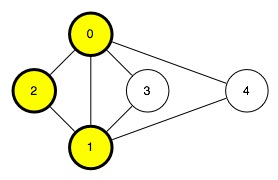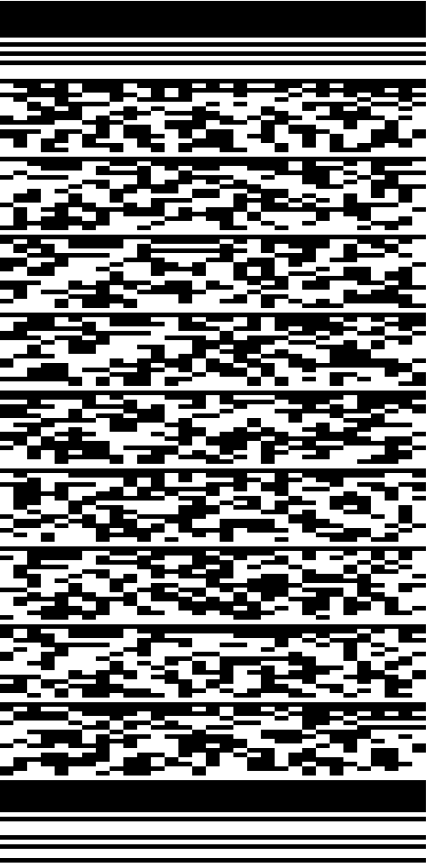


To be shipped from one city to another, a package must be transported by a sequence of hops, where each hop carries the package between a pair of cities served by one of the aircraft. Furthermore, the sequence must include at least one of Xedef's hubs.
To facilitate routing, Xedef wishes to encode the length of the shortest sequence of hops from every city to every hub on the shipping label of every package. (The length of the shortest sequence leading from a hub to itself is zero.) Obviously, a compact representation of this information is required.
You are to implement two procedures, encode(N,H,P,A,B) and decode(N,H). N is the number of cities and H is the number of hubs. Assume that the cities are numbered from 0 to N-1, and that the hubs are the cities with numbers between 0 and H-1. Further assume that N ≤ 1000 and H ≤ 36. P is the number of pairs of cities connected by aircraft. All (unordered) pairs of cities will be distinct. A and B are arrays of size P, such that the first pair of connected cities is (A[0],B[0]), the second pair is (A[1],B[1]), and so on.
encode must compute a sequence of bits from which decode can determine the number of hops from every city to every hub. encode will transmit the sequence of bits to the grading server by a sequence of calls to encode_bit(b) where b is either 0 or 1. decode will receive the sequence of bits from the grading server by making calls to decode_bit. The i-th call to decode_bit will return the value of b from the i-th call to encode_bit(b). Note that you must ensure that the number of times decode calls decode_bit will always be at most equal to the number of times encode previously called encode_bit(b).
After decoding the numbers of hops, decode must call hops(h,c,d) for every hub h and every city c (including every hub, that is, also for c=h), giving the minimum number d of hops necessary to ship a package between h and c. That is, there must be N*H calls to hops(h,c,d). The order does not matter. You are guaranteed that it is always possible to ship a package between every hub and every city.
Note: encode and decode
must communicate only through the specified interface.
Shared variables, file access and network access are prohibited.
In C or C++, you may declare persistent variables to
be static to retain information for encode or decode,
while preventing them from being shared. In Pascal, you may declare
persistent variables in the implementation part of
your solution files.

As an example, consider the diagram on the right. It shows five cities (N=5) connected by seven aircraft (P=7). Cities 0, 1 and 2 are hubs (H=3). One hop is needed to ship a package between hub 0 and city 3, whereas 2 hops are needed to ship a package between hub 2 and city 3. The data for this example are in grader.in.1.
The entries in the following table are all d-values that decode must deliver by calling hops(h,c,d):
d City c 0 1 2 3 4 Hub h 0 0 1 1 1 1 1 1 0 1 1 1 2 1 1 0 2 2